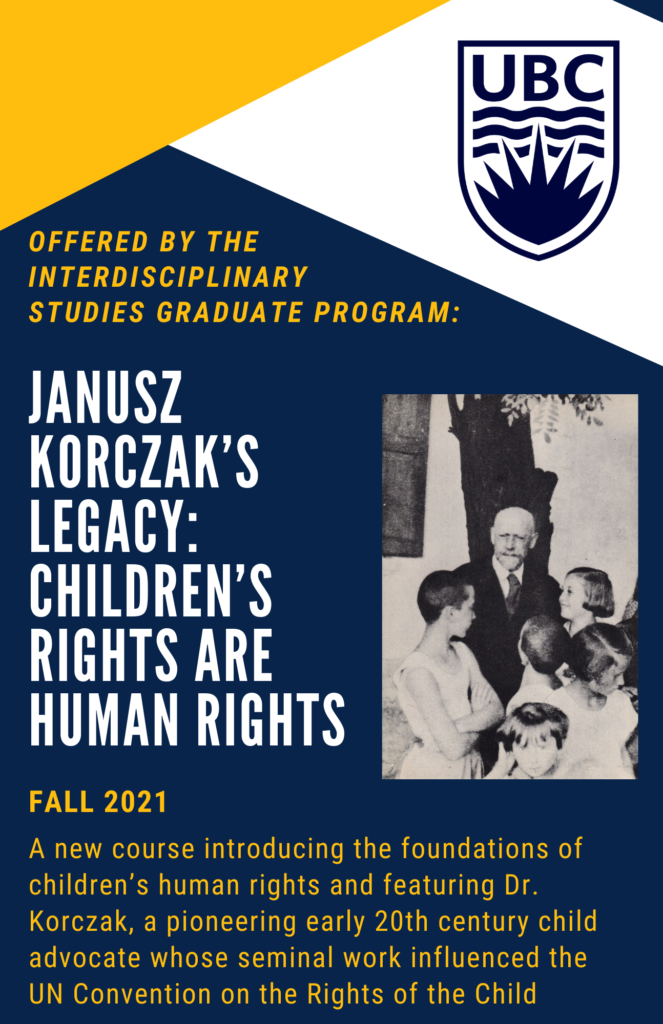About This Course
Recognizing children as ‘rights holders’ – as social agents in their own right – has historical origins in the work of Dr. Janusz Korczak, an early 20th century pioneering child rights advocate. Dr. Korczak, a Polish-Jewish author, pediatrician, and humanitarian, was an orphanage director during WWII who put his children’s human rights beliefs into practice. In 1942, Dr. Korczak died, as he lived, alongside his orphanage children in the Treblinka concentration camp. Today, Dr. Korczak’s ‘child rights’ are human rights – evolving concepts, laws and practices requiring adherence to such principles as inherent dignity, justice and equality for all. Yet, full implementation of children’s human rights, which includes remedying human rights violations children experience in their everyday lives, remains a challenge.

Featuring Dr. Korczak’s legacy, this course introduces students to the foundations of children’s human rights by examining contexts within which those rights are situated. The course proposes to critically examine relevant scholarly debates across disciplines, current issues, and implementation approaches, including those intended to remedy children’s human rights violations while considering ‘real world’ practices and child-centred, rights-based approaches to domestic and global issues across disciplines. Course content includes lectures, case study analysis, discussion, guest speakers including scholars and practitioners, films and diverse readings.
